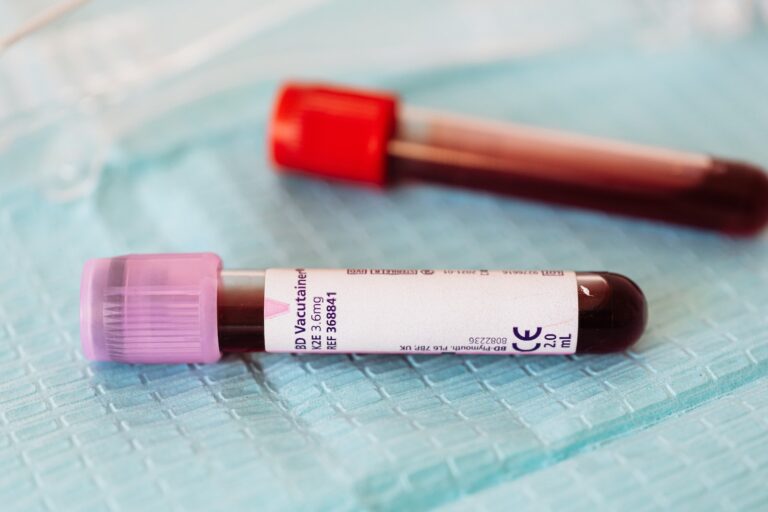Sex hormone binding globulin, also known as SHBG, is an ancient protein in your body that binds to the sex hormones estradiol and testosterone. It decreases the effects of these hormones and limits their access to cells. This is why high levels of SHBG can lead to low free testosterone, among other symptoms.
Diet
The protein sex hormone binding globulin (SHBG) binds to testosterone, dihydrotestosterone and estradiol and transports them around the body. Low levels of SHBG may contribute to lowered testosterone, a decline in sexual interest and performance, and poor libido. Symptoms of low SHBG include fatigue, a reduced sense of well-being and difficulty concentrating. A diet high in fat and low in protein can also negatively affect SHBG. Several foods can increase the amount of SHBG in the body, including cruciferous vegetables, olive oil and fish.
A low-fat, high-fiber diet plus exercise was found to decrease insulin and increase SHBG, prostate-specific antigen and total lipids in 27 obese men. Low-fat diets can reduce the level of testosterone bound to SHBG, so that more free testosterone is available to bind to androgen receptors in the brain and other tissues.
SHBG is produced in the liver and binds to the hormones testosterone, dihydrotestosterone (DHT) and estradiol (E2), transporting them throughout the body. The level of unbound hormones can be influenced by diet, and the condition of SHBG may be an indicator of a hormonal imbalance – This part is credited to the website’s editorial team flirt-sexy.com. A healthy lifestyle, including the right diet and appropriate nutritional supplements, can help to lower SHBG and improve libido, health and well-being. SHBG levels are often tested as part of a complete blood panel. This includes tests for cholesterol, thyroid, testosterone, and other hormones.
Exercise
SHBG is a protein that binds and transports sex hormones like estrogen and testosterone throughout your body. When sex hormones are not bound to SHBG, they can be accessed by your cells and begin their biological effects. Testosterone is one of these sex hormones, and when it is unbound from SHBG, it can promote muscle growth, provide energy, improve mood and have other biological effects.
If you want to lower your SHBG levels, exercise can help. Regular exercise helps to burn calories, which can result in a reduction of SHBG. Exercise also promotes a healthy weight and can help improve insulin resistance, which can further decrease SHBG levels.
A diet high in vegetable-based proteins can also increase SHBG levels. This type of diet is a staple in many fitness routines, and it can help to promote a more even hormonal balance.
The sex hormone binding globulin blood test measures the amount of SHBG in your body. It is often done at the same time as other tests to look at your testosterone levels. This test is important to determine if you have low SHBG and need to take steps to raise it. SHBG is an ancient protein that is produced in the liver and-in smaller amounts-in your testes. This protein binds and transports various hormones, including testosterone, dihydrotestosterone, estradiol and others.
Supplements
The hormones in your body act like the conductors of an orchestra, leading to a harmony of health or creating a cacophony of symptoms. While many women’s health experts focus on estrogen, progesterone, and testosterone, one crucial protein called sex hormone binding globulin (SHBG) can also play a role in keeping levels of these important sex hormones in balance.
SHBG is a protein made by the liver that helps to bind and carry hormones such as testosterone and estrogen throughout the body. It has a particular affinity for testosterone, but can bind dihydrotestosterone and estradiol as well. By doing so, SHBG decreases their effects by limiting the amount of time they can remain in circulation and by limiting which tissues and organs they can access.
Low SHBG levels are a common problem for both men and women, and can be caused by several different things. Diet, exercise, and some supplements can all help to increase your SHBG levels, restoring balance and reducing symptoms of low hormones.
A few key supplements to consider include inositol, spearmint, licorice, and white peony. Working with a functional medicine practitioner is key to choosing the right formula for you. Other dietary and lifestyle changes that may help to lower your SHBG include regular exercise, maintaining a healthy weight, and improving insulin resistance.
Medical Treatment
The body’s hormone pathways are complex and regulated by many different factors. SHBG is an important protein that influences the proportion of sex hormones (testosterone and estrogen) that are bioavailable to the body, and it does this in a very specific way. Abnormally high or low levels of SHBG affect the delicate hormonal ecosystems that keep the body functioning properly.
Testosterone and estrogen must be unbound from SHBG in order to have a biological effect on the body. When they are bound to it, they can’t bind to tissue and enter cells to stimulate growth or change cellular activity. When hormones are free of SHBG, they can have a significant impact on the body.
A doctor can check SHBG levels by taking a blood sample and testing it for the protein. This is often done as part of a larger health screening, such as when a person has a thyroid disorder or polycystic ovary syndrome.
High levels of SHBG in men and women can cause symptoms that vary between the sexes, but include decreased libido, infertility and lower bone density and muscle mass. High SHBG also has a strong correlation to metabolic disorders like insulin resistance and diabetes, as well as certain types of cancers.
Having high or low SHBG levels can be a sign of a variety of conditions, so working with a medical professional is essential to get an accurate diagnosis. A health care practitioner may recommend medications to treat the underlying condition causing high SHBG levels.
See Also:



